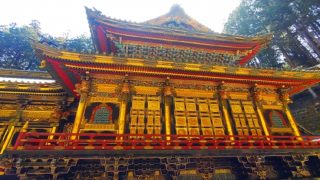 national treasure
national treasure National Treasure “Kangiin Shodendo” in Saitama The Allure of Magnificent Carvings and the Faith in Marriage Blessings
Known as the “God of Marriage,” Kangiin Shodendo has been a place where people pray for love, harmony, and prosperity since the Edo period. With its vivid decorations and symbolic carvings, it offers not only breathtaking beauty but also an authentic experience of Japan’s living faith and artistry.









